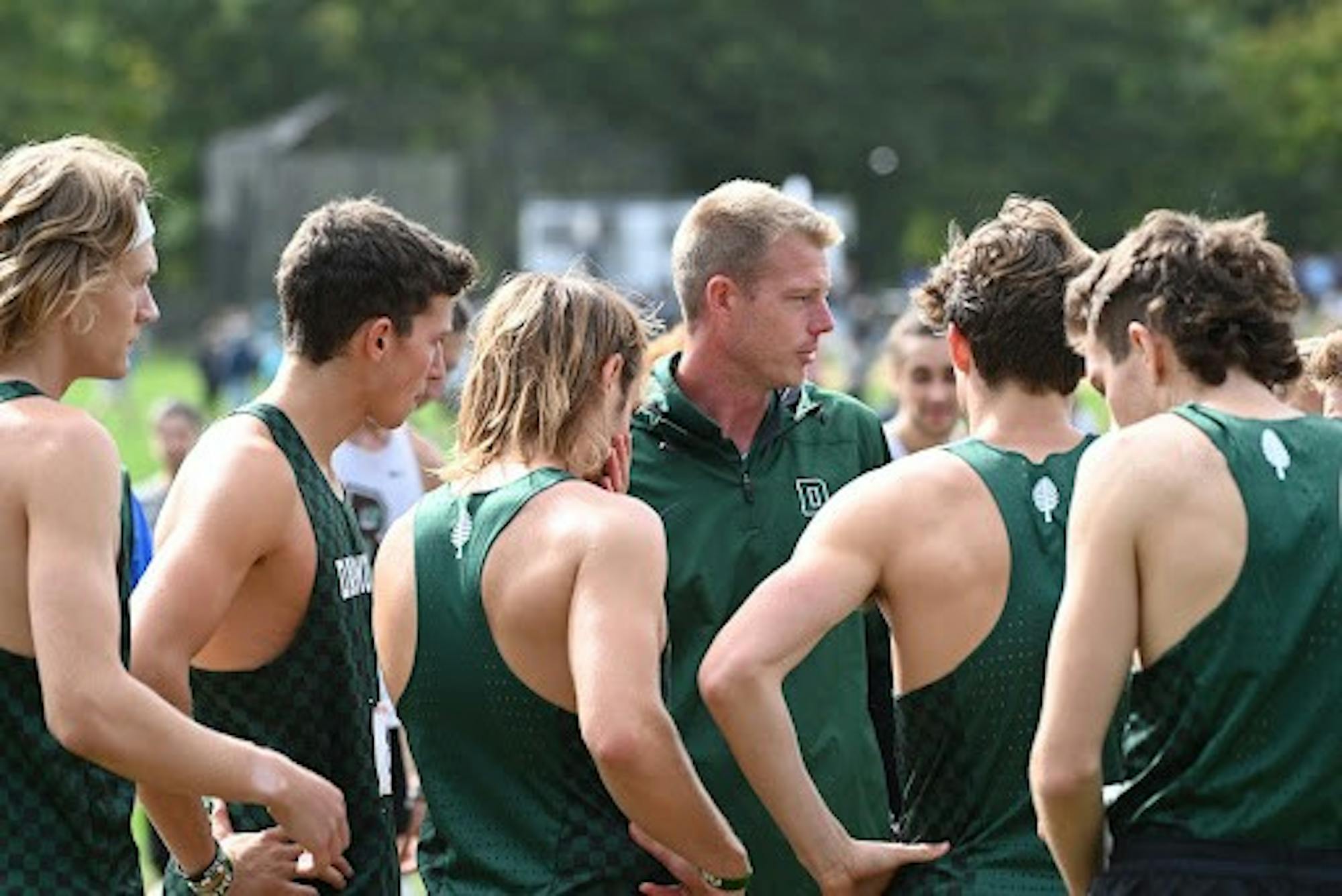Most collegiate athletes have two coaches throughout their athletic career — their high school coach and their college coach. This presents a challenge when it comes to transitioning from one coach to another. Between different coaching styles, philosophies and workouts, it takes some time for athletes to adapt to a new coaching environment. Often, athletes who excelled under a previous coach struggle to find success under a new one, or even end up injured following unfamiliar training. And while most athletes only have to undergo this transition once in their lives, I have had to adapt to five different coaches in my just-over-two years at Dartmouth.
Coming to Hanover in 2020, I expected my coach for the next four years to be the same one who recruited me, the same one who had been at Dartmouth for the past 28 years — Barry Harwick ’77. Prior to freshman fall, I transitioned to his distance-focused training plan after being predominantly a middle distance runner in high school. After a difficult adaptation both to college running and to his training in particular, he announced his plans to retire at the end of September. Shortly thereafter, the now-former middle distance coach, John Simons, met with the team and it appeared that he would be taking over until a new coach was hired.
Given that Harwick was distance-oriented, we were forced to adapt to a whole new coaching philosophy of speed-based workouts. However, after a couple of workouts under Simon’s new guidance, it was then decided that Courtney Jaworski — the women’s distance coach at the time — would take over in the interim period. Under him, we transitioned back to a more strength-based model with lots of hill and tempo workouts. Then, as we entered into December, this brief stint ended with the hiring of a new and permanent coach — Justin Wood.
Justin made the cross-country move from Los Angeles to the Upper Valley at the end of 2020 with a promise of structure, dedication and success for his athletes. He intended to stay for the next decade, thereby finally putting an end to the spell of training disruptions. He worked incredibly hard to make this transition as smooth as possible. Despite half of us taking classes and training remotely that winter, he established personal relationships with us over one-on-one check-ins and team meetings, incorporated our views and opinions when defining our team’s goals and truly built a new team culture – one befitting of a nationally competitive program.
Justin quickly became one of my strongest mentors. When I was experiencing a mental block during my first outdoor season, he took the extra time to coach me through race mentality and strategy. During my sophomore fall, he individualized my training to utilize my fast-twitch strengths rather than constructing a “one-size fits all” workout plan that many college coaches do. He began running multiple practice times per day so he could work more closely with each individual and taught me from scratch how to run the steeplechase. Outside of running, I consulted with him on leadership skills, life decisions and team culture. He always made a point that he didn’t simply develop runners — he cared about each of us individually and our personal growth.
It wasn’t until the 2022 indoor season that all the work he put into the team — and that the team put into training — began to foreshadow the success he promised when he first came to us. Almost everyone that season ran a personal best: three guys knocked on the door of a sub-four minute mile with a 4:01 and two 4:02s and Dartmouth won the distance medley relay at the Ivy League Heptagonal Championships. The team had bought into what he created and we were geared up for what the next few years would bring. After our final team meeting of the spring, our coach laid out his image for the “New Era Men of Dartmouth” — a play on the team’s instagram handle, @menofdartmouth, which stems from the College’s alma mater. We finished that meeting the same way we always did — with one clap, in unison, on the count of three.
At the start of the new era this fall, the team was buzzing on the first day of preseason. While we hadn’t heard much from our coach the few days prior, we assumed he was waiting until our team meeting at 5 p.m. that day to speak with us. However, at 4:30 p.m. it was announced in a last-minute meeting with athletic director Mike Harrity and associate athletics director Tiffany Sykes that Justin had submitted his letter of resignation that very same day. The team was shocked by this news, as it seemed implausible that someone who cared so deeply about his athletes’ and the program’s success left on his own accord, especially at such a crucial moment in the year.Reminiscent of my freshman fall, it turns out that as leaves change at Dartmouth, so do coaches.
With our first race a few weeks down the line and our coach gone, the team turned to the current women’s head distance coach Kendra Foley — herself a relatively new hire after the departure of Jaworski at the end of the 2021 school year. The team once again adapted to a new interim coach — who, despite the hectic transition, has done an excellent job leading the team to success this season.
In the next few weeks, we will hopefully have a new and permanent coach come to our program. Despite this tumultuous period of coaching changes, the team has stayed its course and remains bought into the culture, lifestyle and “new era” that Justin established. Although he is no longer here, his mentorship will last long with this team and enable us to be successful.
One clap on three…




